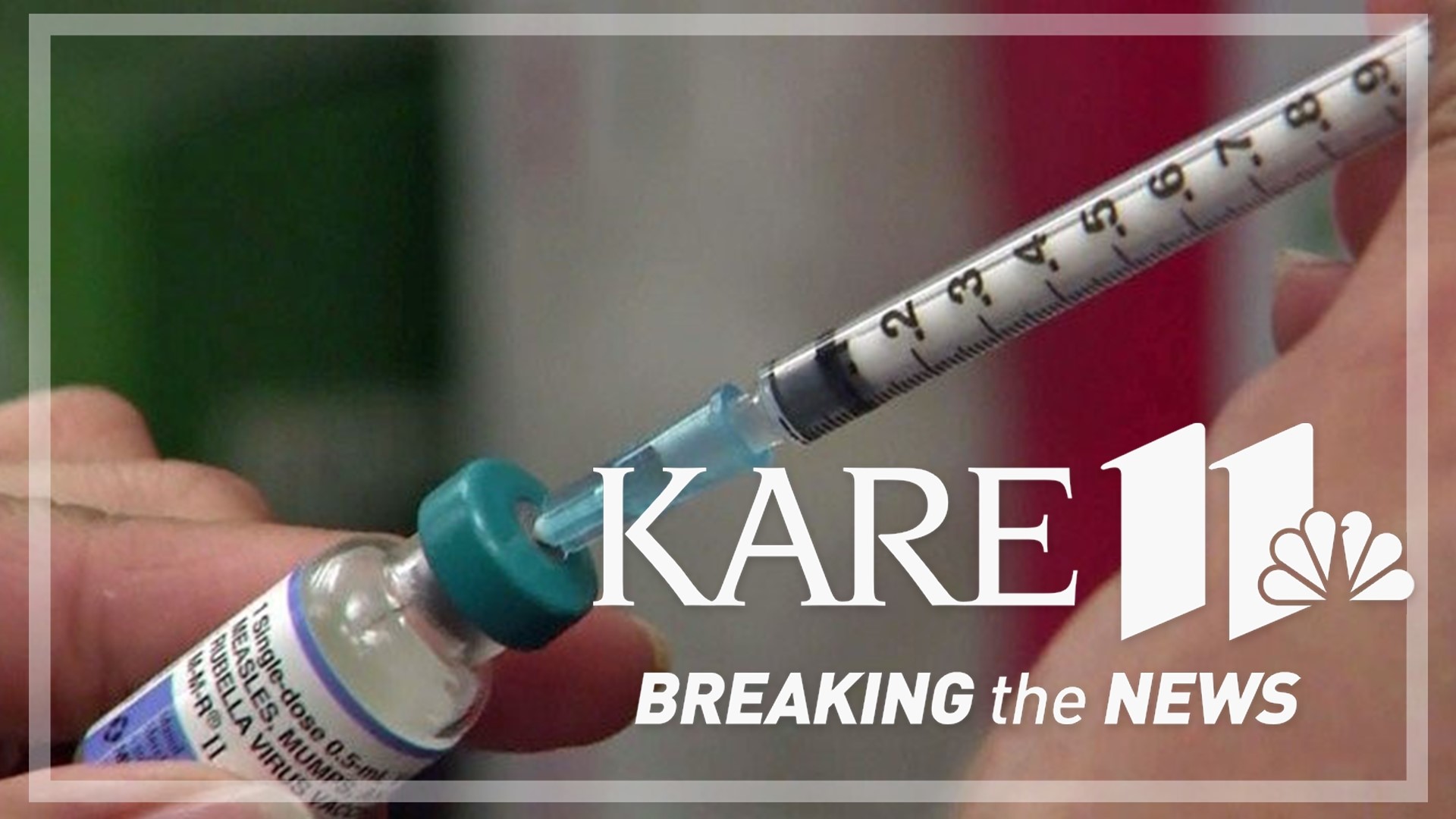ST PAUL, Minn. — State health officials are giving doctors and providers a heads-up about a spike in measles cases among children related to international travel.
In a message to providers, the Minnesota Department of Health (MDH) says 12 cases of measles related to international travel have been identified since June, adding that the state accounts for half of all U.S. cases.
MDH says the number of children who received measles, mumps and rubella vaccine (MMR) declined during the pandemic and coverage rates have not rebounded, leaving more kids susceptible to the disease. To guard against a larger outbreak, the department is sending this message to doctors:
- Consider measles in patients presenting with clinically compatible symptoms.
- Be alert to symptoms of measles disease in those returning from international travel or patients who have been in contact with persons recently returning from international travel.
- Assess MMR vaccination status of patients and vaccinate susceptible persons according to routine recommendations.
- Do not assume older children are up to date with their shots.
The Mayo Clinic describes measles as a highly contagious childhood infection that can be serious, even fatal for small kids. Despite vaccination efforts, measles still claims the lives of more than 200,000 people each year, mostly children. Mayo adds that the most recent U.S. measles cases originated outside the country and occurred in people who were unvaccinated, or who didn't know whether or not they had received MMR vaccine.
Measles signs and symptoms appear around 10 to 14 days after exposure to the virus. They typically include:
- Fever
- Dry cough
- Runny nose
- Sore throat
- Inflamed eyes (conjunctivitis)
- Tiny white spots with bluish-white centers on a red background found inside the mouth on the inner lining of the cheek — also called Koplik's spots
- A skin rash made up of large, flat blotches that often flow into one another
MDH says doctors should advise patients to follow CDC recommendations for international travel, meaning that infants from six to 11 months old should receive one dose of MMR vaccine before travel, while children 12 months and older should have two documented doses.
For more information, check out a special MDH measles web page for health professionals.
Watch more local news:
Watch the latest local news from the Twin Cities in our YouTube playlist:

